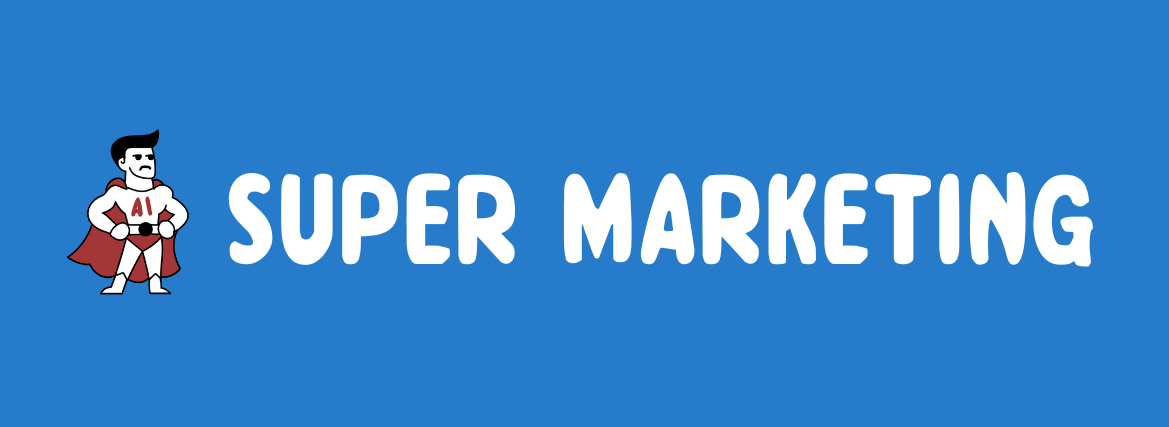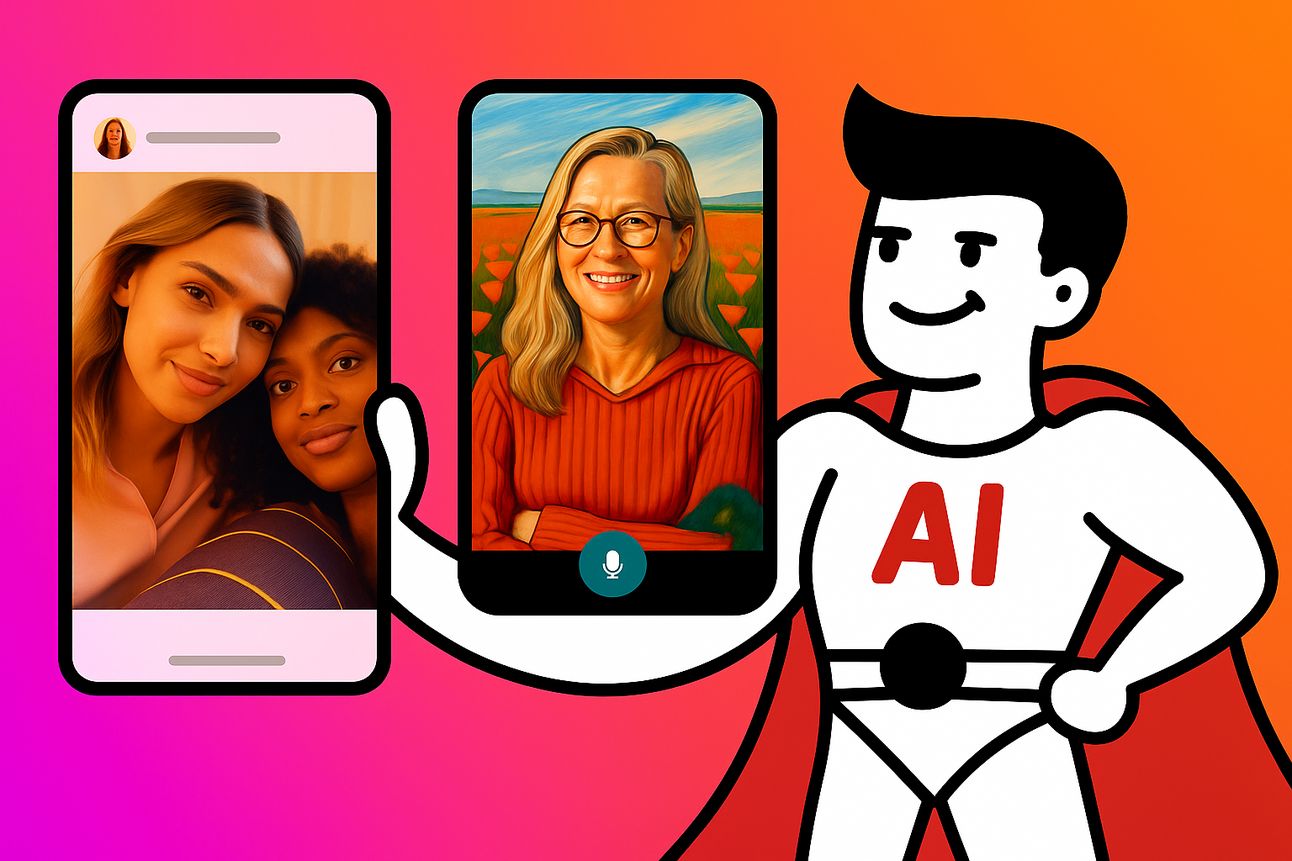- Super Marketing
- Posts
- 👀 Google's AI Influencer Experiment Gets Weird
👀 Google's AI Influencer Experiment Gets Weird
Also: Netflix's automated content clipping patent

Good morning. Welcome back to Super Marketing. If you're new here, this is where we track the newest AI tools, creator updates, and marketing moves that actually work—without the noise. You can browse past releases here when you need them.
BIG MOVES
Google tests AI versions of high-profile influencers

The implementation of generative AI keeps getting stranger. Google launched a new AI experiment called "Portraits"—essentially AI-generated depictions of famous people that offer conversational advice in their voice.
The first Portrait features Kim Scott, bestselling author of "Radical Candor," offering AI-powered coaching inspired by her communication and leadership principles. Users can ask questions, and the Portrait uses Gemini's reasoning capabilities to generate responses, drawing from Scott's content and speaking in her voice via an illustrated avatar.
So it's really just another way to find relevant advice segments based on conversational prompts. Rather than reading all of Scott's books or memorizing key approaches, the system gives you easy access to relevant sections based on your query.
But here's the thing: maybe speaking with the actual person would offer some assurance and guidance, but relying on an AI system seems like a far less valuable experience. Google says the unique value is that these are directly linked to real-world experts who provided their own knowledge and voice.
Meta's working on similar AI versions of creators that can respond to fans, hoping this provides additional engagement without imposing workload on creators. But why would this be valuable when you're not actually talking to the real person?
Why put a face to an AI system when it's really just the same as talking to a bot?
NEW MARKETING TOOLS
Never edit a video alone again.
Meet Underlord, your AI co-editor. This is vibe editing.
— Descript (@DescriptApp)
7:07 PM • Jun 10, 2025
1. Underlord by Descript — AI video editor for talking heads
Underlord specializes in editing talking-head videos with AI, handling cuts, pacing, and transitions automatically. It's been available for a while but focuses specifically on interview and presentation-style content.
Use it if: you create lots of talking-head content like interviews, tutorials, or presentations and want to speed up the editing process.
2. Kawaak — Turn expertise into viral LinkedIn posts
Kawaak helps you transform your professional knowledge into LinkedIn content that's designed to get engagement and reach. It analyzes successful post formats and adapts your expertise to fit.
Use it if: you have valuable professional insights but struggle to package them in a way that performs well on LinkedIn.
MONETIZE THIS
John Rush's 26 startups powered by AI agents
I'm working on 24 startups simultaneously
(half a million b2b users, multimillion ARR)No VC funding, employees, calls, office, managers...
Each business is 100% async over chat:
> me: idea, design, UX & marketing.
> comaker: coding, product & support.Why, how, what:
— John Rush (@johnrushx)
3:00 AM • Feb 26, 2025
Over the last 3 years, John Rush has launched 26 startups, serving nearly a million users without VC funding or a traditional team. His secret is highly specific, no-interface AI agents that handle everything from SEO content to outbound sales.
These aren't general-purpose tools. Each agent replaces an entire workflow, sometimes a full-time role, without requiring complex configuration or human oversight.
His Listing Bot finds every site where a product should be listed and automatically submits it—forums, aggregators, directories, anywhere submissions are allowed. SEO Bot accepts a single URL, determines what topics are worth writing about, generates blog articles in bulk, and publishes them directly to a CMS.
What makes John's agents unique is their autonomy level. They don't assist—they operate independently.
FROM BIG BRANDS
Netflix patent automates content clipping

Netflix received a patent for technology that automatically extracts "compelling portions" of shows and movies to create clips designed to encourage viewers to watch more programming.
The patent notes that clips can entice viewers to check out additional programming, but having editorial teams compile clips is laborious and time-consuming, especially as content libraries grow. The humans tasked with identifying clips could also bring subjective viewpoints that muddle selection.
Netflix's patented tech automates this work. The "clip application" identifies "compelling" content based on certain criteria and clusters shot sequences to build clips. It's designed to remove the subjective element while scaling clip creation across their massive content library.
The new patent comes as Netflix puts serious firepower into making shows and movies more discoverable.
🔥 PRESS WORTHY
Flux.1 Kontext launched from Black Forest Labs - powerful image editing model that's cheap and fast for photo restoration and image combining
Gaming streamer Shank becomes most-followed African Twitch streamer just one month after joining the platform
Comedian Adam Friedland reveals he used to make $100,000 monthly on Patreon
OnlyFans creators turn to billboards to boost subscribers amid growing platform saturation